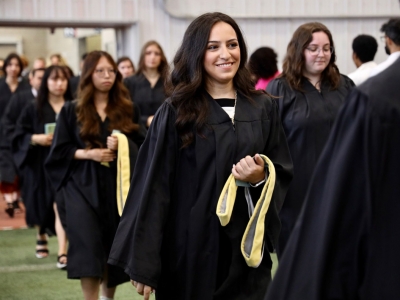Carleton University has received approximately $800,000 in funding to support Ontario’s Virtual Learning Strategy (VLS). In response to a recent call out from eCampusOntario for expressions of interest, Carleton submitted 14 proposals for hybrid and online learning projects as the lead institution, of which 10 have been accepted. Carleton instructors are also collaborating on an additional 13 projects that are led by other Ontario post-secondary institutions.
“In the last year, Carleton has demonstrated its continued drive for growth and innovation in the areas of virtual teaching and learning,” said David Hornsby, associate vice-president (Teaching and Learning). “We are honoured to have these efforts rewarded and excited to support our new initiatives as part of the eCampusOntario Virtual Learning Strategy.”
Carleton’s list of proposals included plans to transition courses from face-to face to virtual delivery, develop new, high-quality online courses, and collaborate with University of Ottawa, Algonquin College and La Cité to deliver joint diploma-degree programs.
“Since we transitioned to online learning, the Carleton teaching and learning community has adapted in flexible, compassionate and creative ways,” says Jerry Tomberlin, provost and vice-president (Academic). “This substantial investment provided through eCampusOntario will help bolster efforts across Carleton that will further integrate innovative pedagogical practices for online and hybrid learning.”
The VLS is a historic $50-million investment by the Ontario Ministry of Colleges and Universities (MCU) intended to drive growth and advancement in virtual learning across the province’s post-secondary institutions. The strategy will expand the possibilities of traditional and lifelong learning through the accelerated use of both online and hybrid learning.
The COVID-19 pandemic has had an unprecedented impact on Ontario’s post-secondary education sector as institutions rapidly transitioned to remote delivery. In close consultations with the post-secondary sector in summer 2020, the MCU heard the need for virtual learning supports to enable access to high-quality learning. These results informed the launch of the Virtual Learning Strategy.
Learn more about the funded projects.
Monday, May 17, 2021 in Campus News
Share: Twitter, Facebook



